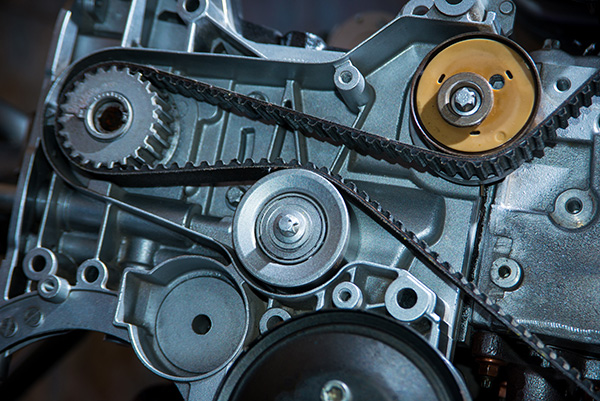
Engine timing is a critical aspect of internal combustion engines, governing the precise sequence of events that occur during the combustion process. From the ignition of fuel to the expulsion of exhaust gasses, timing plays a pivotal role in ensuring optimal engine performance and efficiency.
The Significance of Engine Timing
Engine timing refers to the synchronization of various engine components to ensure that fuel combustion occurs at the right moment in the engine's cycle. Proper timing ensures efficient fuel consumption, maximizes power output, and minimizes harmful emissions. Timing issues can lead to a range of problems, including reduced engine performance, increased fuel consumption, and potential engine damage.
Key Components of Engine Timing
Engine timing is controlled by several key components, including the camshaft, crankshaft, and timing belt or chain. The camshaft regulates the opening and closing of the engine's valves, while the crankshaft dictates the piston's movement within the cylinder. The timing belt or chain connects these components, ensuring they operate in perfect harmony.
Maintaining Proper Engine Timing
Regular Inspection and Maintenance
Keeping a vigilant eye on your vehicle's timing components is crucial for ensuring proper engine timing. As recommended by the manufacturer, inspect the timing belt or chain, tensioners, and pulleys regularly. Look for signs of wear, such as fraying, cracking, or glazing on the belt, and listen for any unusual noises that may indicate a problem with the timing components. Addressing these issues promptly can prevent more significant problems down the road.
Timing Belt/Chain Replacement
The timing belt or chain is a critical component that synchronizes the camshaft and crankshaft rotation, ensuring precise engine operation. Over time, these belts and chains can wear out, leading to potential failure and catastrophic engine damage. Refer to your vehicle's owner's manual for the recommended replacement interval, typically between 60,000 to 100,000 miles.
However, if you notice any signs of wear or damage before reaching the recommended mileage, it's essential to replace the timing belt or chain immediately to avoid costly repairs.
Proper Engine Operation
Beyond regular maintenance, your driving habits, and operating conditions can also impact engine timing. Avoid aggressive driving behaviors such as rapid acceleration, sudden braking, and high-speed driving, as these can put unnecessary stress on the timing components and lead to premature wear.
Additionally, be mindful of your engine's temperature, as overheating can cause timing-related issues. Ensure your cooling system functions correctly, and avoid prolonged idling or operating in extreme temperatures. By practicing responsible driving habits and maintaining optimal operating conditions, you can extend the lifespan of your vehicle's timing components and ensure reliable engine performance.
Common Questions About Engine Timing
How do I know if my engine timing is off?
Look out for rough idling, trouble starting, reduced fuel efficiency, or odd engine sounds like knocking. If you notice these signs, have a mechanic check your timing.
Can I adjust my engine timing myself?
Modern cars need specialized tools and knowledge for timing adjustments. It's safer to let a professional handle it to prevent damage.
How often should I check my engine's timing?
It's best to inspect timing components during routine maintenance, typically every 60,000 to 100,000 miles, following the manufacturer's guidelines. Keep an eye out for signs of wear between checkups.
Some of the best engine maintenance and repairs in Richmond - Auto Rescue is one call away!